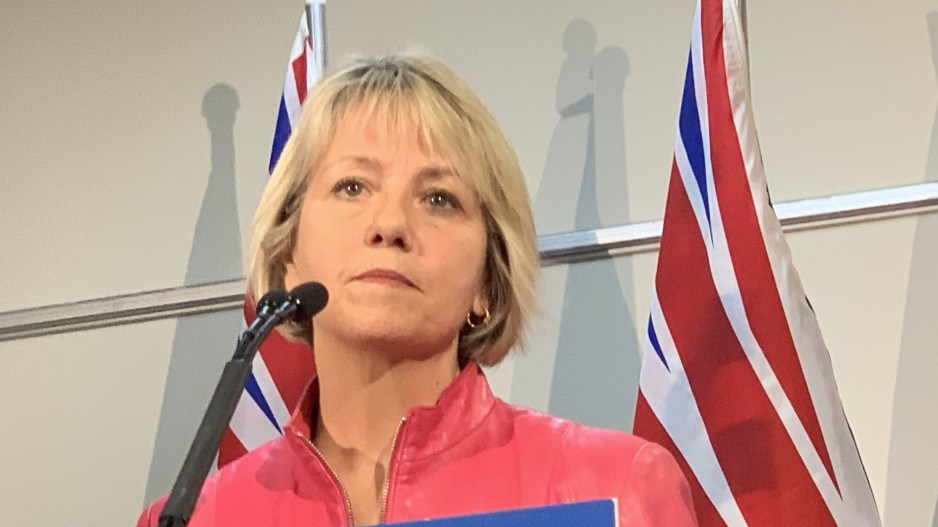B.C. has 73 cases of COVID-19, including nine new cases, provincial health officer Bonnie Henry and Health Minister Adrian Dix announced March 14.
The largest cluster of cases is at North Vancouver's Lynn Valley Care Centre where there are a total of 16 cases, including 12 staff and four patients. One case at that centre, a male in his 80s, became the first person in Canada to die from the virus, on March 9.
Another seniors' care home on the North Shore is West Vancouver's Hollyburn House, where there are two cases: one staff member and one patient, Henry said at a press conference.
North Vancouver's other cluster is at Lions Gate Hospital, where there remain three cases.
Seven of the new cases are in the Vancouver Coastal Health region, while one case is in the Fraser Health region and one presumptive case is in the Interior Health Region.
Three of the 73 infected people are in hospital, while one new death has been reported, for a total of two deaths.
Henry said most patients have recovered from symptoms of the disease. She had said on March 12 that six people had tested negative for the virus twice, and were therefore considered "recovered."
She clarified on March 14 that four people have tested negative twice, while the two others have only tested negative once. Those who still have the virus in their systems but are not officially recovered may shed the virus but, Henry said, it may not be a "live virus," and therefore may not lead to further infections.
Henry addressed the bulk buying, and panic buying, that many British Columbians are doing. She stressed that supply chains for food are strong, and that any empty shelves are the result of a surge in demand and not a result of a shortage of supply.
She and Dix are providing updates at least six days a week. Yesterday, they announced that B.C. had a total of 64 cases of COVID-19, or a record-high tally of 11 new cases compared with the day before. The new cases yesterday include three administrative staff members who work at Lions Gate Hospital.
Henry said the testing strategy in B.C. for COVID-19 is to prioritize health care workers, hospital patients and those who have severe illnesses as well as those in long-term care.
She said that the province does not have a shortage of the nasal swabs that are made specifically to detect the disease, and then added that, if needed, swabs that were intended to detect sexually transmitted diseases could be used in place of the nasal swabs. Those swabs, she said, are plentiful.
@GlenKorstrom




